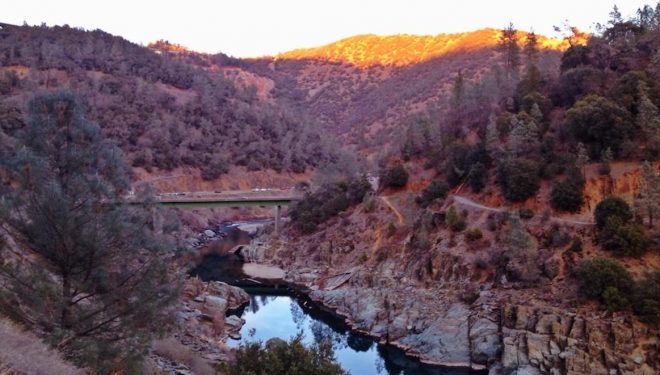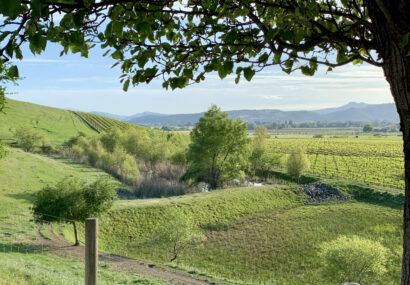
By John Sittler, Esq. and Paul Noto, Esq.
Colorado voters narrowly passed Proposition DD during the general election on November 5, 2019. Proposition DD legalizes sports betting in Colorado while enacting a tax on the gambling that, among other things, will primarily be used to fund projects called for under the Colorado Water Plan.
Background
In May 2018, the U.S. Supreme Court nullified a federal law limiting sports betting to a few select states. In the immediate aftermath 42 states began working toward legalizing sports betting within their borders. In Colorado, the General Assembly passed HB 19-1327 and it was signed into law by Governor Jared Polis. (See, https://leg.colorado.gov/sites/default/files/2019a_1327_signed.pdf) However, that bill did not in itself legalize the practice. Instead, the Taxpayers’ Bill of Rights (TABOR) requires a vote from affected citizens for all Colorado tax increases, and a tax was proposed on the gaming revenue. Accordingly, the passage of HB 19-1327 sent Proposition DD to Colorado voters last month. (See, https://leg.colorado.gov/sites/default/files/initiative%2520referendum_2019-2020%20hb%2019-1327v3.pdf) Passage of the measure legalized sports betting at all 33 licensed Colorado casinos, as well as allowing those casinos to contract with private companies to provide for online betting. Crucially, those casinos will pay a 10 percent tax on their proceeds with the majority of that money going to fund water projects in Colorado. That tax would be capped at $29 million a year, although most estimates put the annual figure at closer to $16 million. In addition to funding the Colorado Water Plan, revenue from the sports betting tax will contribute $130,000 per year to human services, discussed below, and another 6 percent per year (estimated at $960,000) to a “hold harmless” fund. This fund would reimburse “traditional” gambling entities, such as horse racing, if they can prove that they lost money in a given year due to the legalization of sports betting in Colorado.
The Colorado Water Plan
The majority of the tax revenue from sports betting will go toward furthering projects identified in the Colorado Water Plan. Development of the Colorado Water Plan began in 2014 under then-governor John Hickenlooper. The resulting plan identifies more than $20 billion worth of water projects relevant to the state’s continued growth, development, and success throughout the rest of this century. Critically, the plan is chronically underfunded, owning partly to its sizeable budget, but also to the TABOR issues plaguing tax increases in Colorado. The potential $29 million per year in gambling tax revenue would more than triple the average budget currently given to the Colorado Division of Water Resources, the agency tasked with overseeing and carrying out the Colorado Water Plan.
The Water Plan estimates the funding shortfall as $3 billion, or $100 million per year for 30 years. Although that is only a rough estimate, it is clear that both that a significant amount of funding is needed, and that the revenues from Proposition DD will not cover the difference. Instead, supporters of the new measure have called the projected $13-29 million per year a “down payment” to begin funding the dozens of waiting projects. The Water Plan’s compilation of various Basin Implementation Plans (BIPs) throughout the state’s seven basins lists 14 of the 31 top BIPs as “TBD” in their funding needs. Not only is it unclear where the money will come from, it is yet unclear how much money is even needed to achieve some of the Water Plan’s goals.
Passage of Proposition ‘DD’
There was almost no paid opposition to Proposition DD. That is, there were no advocacy groups, PACs, or the like organized to oppose the ballot measure. In contrast, the Colorado Gaming Association, conservation groups, and agricultural coalitions all supported Proposition DD and almost $1 million was spent in support, primarily from casinos and other gaming groups. In addition to the casino industry which obviously supported the measure, Proposition DD was also backed by environmental groups such as Western Resource Advocates which said in a statement: “. . .[t]axing the revenue from legalized sports betting will create a dedicated down payment to help ensure that Colorado has healthy rivers and enough water for all.”
Although there was no organized resistance to Proposition DD, the close vote was probably attributable to those who have moral qualms about gambling, and those who feel the same about taxes. Several newspaper editorials pointed out that Proposition DD earmarks $130,000 a year for the state Department of Human Services, Office of Behavioral Health to create a crisis hotline and fund gambling addiction counselors. The fact that the state acknowledges that issue, the argument goes, is proof enough that we should not legalize something that we know—and in fact are planning for—to be to the detriment of some of our citizens. The other main prong of opposition stemmed from how the ballot language was worded. Although the 10 percent tax is only attributable to the casinos themselves, not Colorado voters, or even Colorado gamblers, the ballot read:
Shall state taxes be increase by twenty-nine millions dollars annually to fund state water projects and commitments and to pay for the regulation of sports betting through licensed casinos by authorizing a tax on sports betting of ten percent of net sports betting proceeds, and to impose the tax on persons licensed to conduct sports betting?
As supporters of Proposition DD later admitted, the ballot language was not artfully crafted and there were probably many voters who did not make it past “shall state taxes be increased by twenty-nine million dollars.” There was also small opposition from Coloradans for Climate Justice, a group that opposed the measure purely because they believe that water projects and other expenses directly attributable to climate change should be paid for by the fossil fuel industry, not by Colorado citizens. That being said, the measure passed by the razor thin margin of 50.8 to 49.2 percent, or about 22,000 votes out of the total 1.4 million votes cast.
Conclusion and Implications
Sports betting will become legal in Colorado on May 1, 2020. Supporters are hopeful that, while not an ultimate fix, the accompanying tax on casino proceeds will begin to put a dent in the funding deficit for water projects identified in the Colorado Water Plan. If the measure proves successful and meaningful gains are seeing in the development of water projects, perhaps the state will begin to explore other means of getting funding to the Colorado Water Plan. With almost every other state legalizing, or attempting to legalize sports betting, the Colorado model could become a draft for other western states looking to use this new source of revenue to support their arid landscapes in a dry 21st century.



